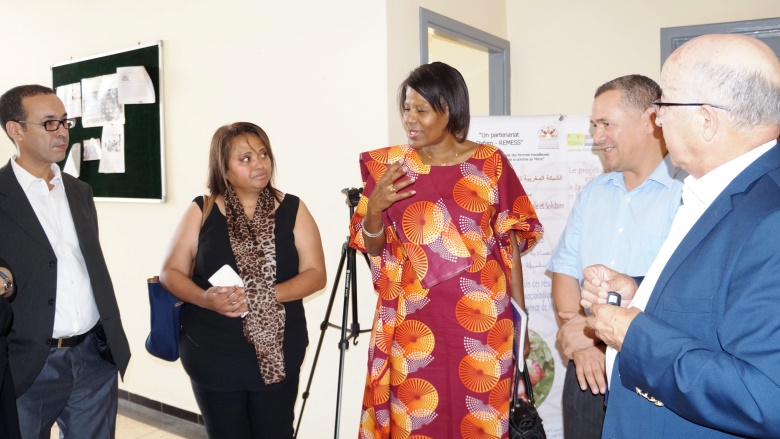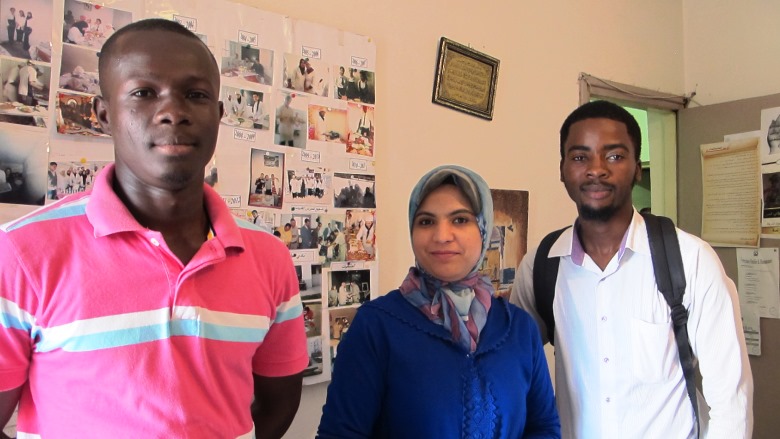Salé (Morocco), August 20 2015 – “I will not learn very much about Morocco, and how best the World Bank can help meet its challenges, by sitting at my desk all day,” announced Marie Francoise Marie-Nelly to her colleagues, in her very first days as the new World Bank Country director for the Maghreb. True to her word, Ms Marie-Nelly was quick to accept an invitation for her first field visit from a prominent civil society organization.
The Réseau marocain de l’économie sociale et solidaire (REMESS) is a national network of associations whose goal is to help integrate marginalized groups, such as uneducated women, youth and immigrants, into the socio-economic fabric of the country. The network collaborates with cooperatives, training centers and other local initiatives across the country, to build networks and provide training, as a way of strengthening their capacities and ultimately their impact.
“One of our objectives is to help organizations such as the World Bank hear stories from the field about development constraints and the effectiveness of policies that are often adopted at a very central level” said Abdeljalil Cherkaoui, founder of the REMESS. During the visit, the new Maghreb Country Director was able to listen to a wide range of personal stories, to hear what people needed to meet their own specific challenges.
A Sub-Saharan immigrant currently enrolled in a REMESS micro-entrepreneurship coaching program, also supported by the World Bank, explained to Ms. Marie-Nelly: “We need more of this kind of effective support on the ground to help us achieve our aspirations for a better living standard.”


